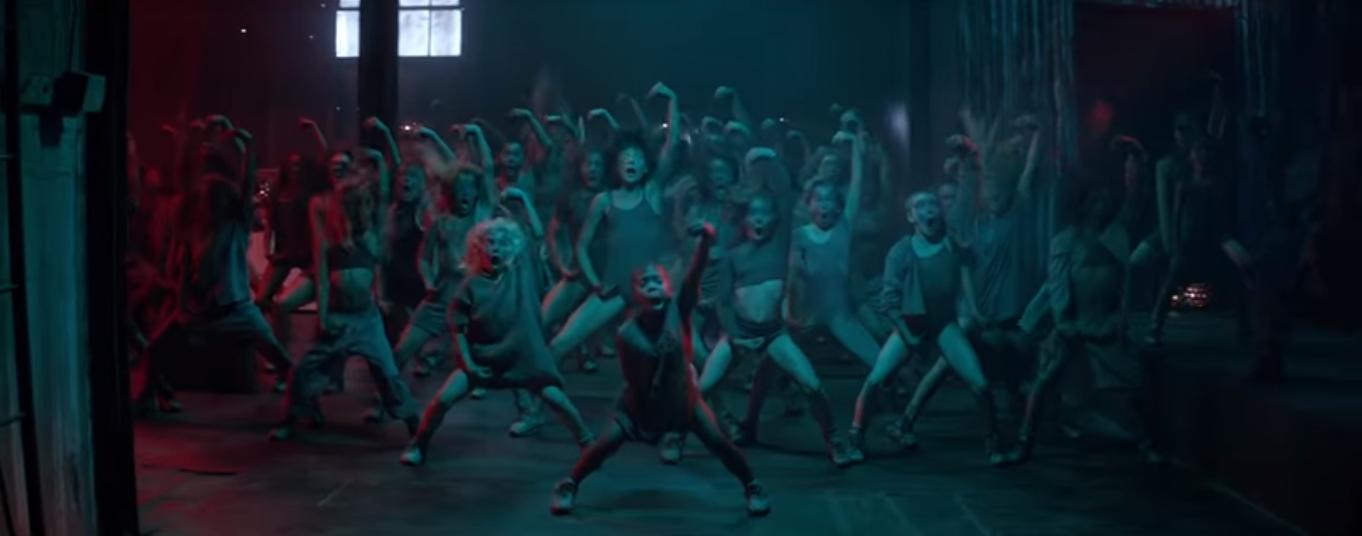As the national elections draw near, we’re now in the middle of Platform Reveal season. From economic plans to their stand on gripping issues, not only are we getting a better grasp of the candidates’ character but also a clearer picture of the (ideal) Philippines according to their own points of view—and in Sara Duterte-Carpio’s, it includes mandatory military service.
During a virtual caravan on Jan. 19, the Davao City mayor expressed her goal of implementing mandatory military service should she win the 2022 vice presidential seat. This will apply to all Filipinos upon turning 18, taking a page off other nations’ books.
“Nakikita po natin ‘to sa ibang bansa, sa South Korea, sa Israel. Hindi po ROTC [Reserved Officers’ Training Corp] lang na isang subject o isang weekend o isang buwan sa isang taon,” Duterte-Carpio, who currently leads preference surveys, said with regard to how the youth can participate in national-building.
(We see this in other countries like South Korea and Israel. It should not just be like ROTC [Reserved Officers’ Training Corp] where it’s just one subject or one weekend or a month in a year.)
“Dapat po lahat ng ating 18 years old, kapag tungtong mo ng 18 years old, you will be given a subsidy. You will be asked to serve our country doon sa ating Armed Forces of the Philippines,” she added.
(Every 18-year-old—once you reach 18 years old—you will be given a subsidy. You will be asked to serve our country under our Armed Forces of the Philippines.)
“We welcome the proposal as this is attuned to the times while the government is faced with adversities and challenges, aligned with our aspirations for the citizenry to contribute to nation-building,” said AFP spokesperson Col. Ramon Zagala.
Since her statement, the AFP was quick to vouch for the proposal. “We welcome the proposal as this is attuned to the times while the government is faced with adversities and challenges, aligned with our aspirations for the citizenry to contribute to nation-building,” said AFP spokesperson Col. Ramon Zagala.
The Department of National Defense has also expressed its support. Defense secretary Delfin Lorenzana mentioned advantages like having a steady pool of reservists for defense and disaster relief operations, young folks becoming “better citizens” because of the training, and the youth having a sense of service instilled in them.
A costly venture
While some are enthusiastic about Duterte-Carpio’s controversial plan, many more concerns popped up after the news. Lorenzana himself, despite being interested in the idea, also admitted that it poses “huge hurdles.” Manpower, funding, and other resources are matters to be discussed on the table, as training camps will be provided for millions of 18-year-old kids each year.
While some are enthusiastic about Duterte-Carpio’s controversial plan, many more concerns popped up after the news. Lorenzana himself, despite being interested in the idea, also admitted that it poses “huge hurdles.”
People who’ve disagreed with it also pointed to the government’s history of questionable priorities in funding. Since the onset of the pandemic—and even during times of calamities—questions have been raised about the Duterte administration’s budget allocation. The 2022 budget, for one, has been hit for having no mass testing funds while billions of pesos have been allotted to military equipment. If social support sectors like healthcare and education have been calling for more assistance, pushing for mandatory military service might be a brewing case of misplaced priorities.
As Lorenzana also points out, our situation with the reference countries isn’t even the same, as we’re “not on war footing.” It’s important to note that what’s effective for others might not work for another.
Qualms about ROTC history
The revival of mandatory ROTC has been a hot topic in recent years, as officials like Bato dela Rosa (who believes it’d be useful in case of a war versus China) keep pushing for it.
But folks online have also shown distrust towards Duterte-Carpio’s proposal because of the ROTC’s history of abuse. The program, which President Duterte previously wanted to make mandatory, is linked with issues on injustice and abuse. The case of Mark Welson Chua—a student who was allegedly killed in 2001 by fellow cadet officers after exposing corruption in their unit—is one of those stories.
University of the Philippines – Diliman student leader Jonas Abadilla highlighted the violence associated with the ROTC program as one of the major reasons why the required training shouldn’t happen.
“Mandatory ROTC in the first place has a goal to instill nationalism to students using military-style training,” he told ANC in an interview today, Jan. 21. However, I believe this will be an insult to the decades of student struggle into academic freedom since there are other ways to express nationalism and patriotism that can be done without this abusive program.”
He added, “Based on the cases that students are being abused and has this culture of violence and blind obedience, I cannot fully say and believe that mandatory ROTC will have this positive impact to the country.”
Jonas Abadilla added, “Based on the cases that students are being abused and has this culture of violence and blind obedience, I cannot fully say and believe that mandatory ROTC will have this positive impact to the country.”
In a tweet, Bayan Muna chair Neri Colmenares also opposed mandatory training, sharing data from the National Union of Students in the Philippines about different forms of reported ROTC-related violence in universities since 1995.
Freedom of choice
Ultimately, people are concerned that the obligation impedes people’s freedom of choice, and can also disrupt the youth’s plans for their own careers.
Ultimately, people are concerned that the obligation impedes people’s freedom of choice, and can also disrupt the youth’s plans for their own careers.
“How can Sara be running for the second-highest office in the land when she does not appear to realize that what the Philippines badly needs are more engineers, educators, scientists, medical personnel, artists, farmers, and workers to develop our country, not more soldiers?” said vice presidential aspirant Walden Bello in a statement on Thursday.
The discussion continues, and at the end of the day, the measure of nationalism comes in different forms. Instead of coercing the youth to risk their lives for the country, maybe invest in them by looking after their well-being so they can best serve fellow Filipinos in their own way.
Read more:
Brush up on the West PH Sea with this free 80-page primer
Recap: When the police and military were seen in UP campuses
Drop that “lazy students” narrative; these kids know what they’re fighting for
Art by Yel Sayo
























Comments